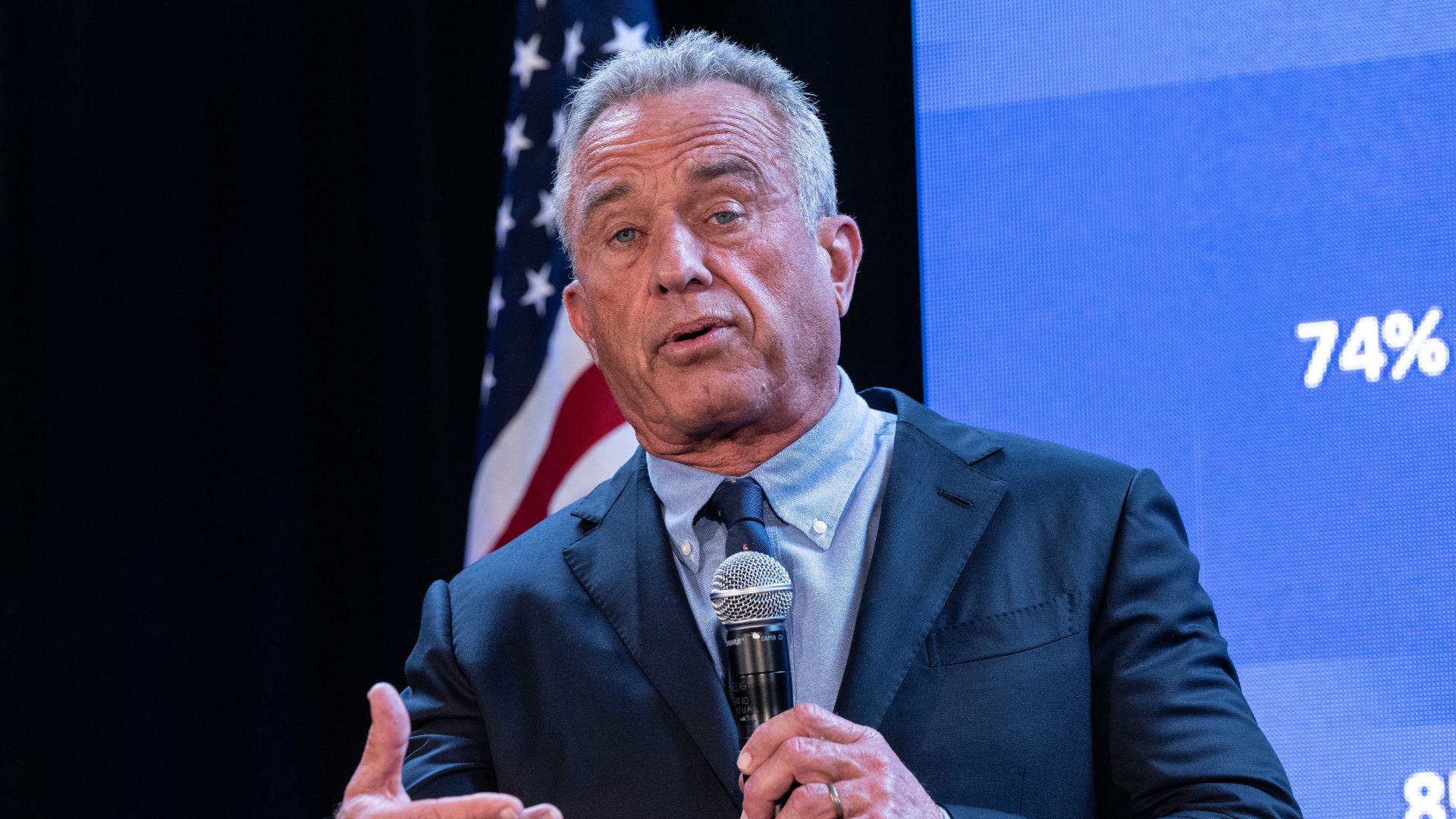
Health and Human Services Secretary Robert F. Kennedy Jr. announced sweeping changes to federal public health publishing practices on Tuesday, signaling a major shift in the relationship between U.S. government health researchers and some of the world’s most influential scientific and medical journals.
Speaking on The Ultimate Human podcast, Kennedy named The New England Journal of Medicine, The Journal of the American Medical Association (JAMA), and The Lancet as journals the Biden-era National Institutes of Health (NIH) would “probably” stop submitting research to.
He cited concerns over editorial bias, industry ties, and a lack of transparency.
Trump’s Sovereign Wealth Fund: What Could It Mean For Your Money?
The move comes as the Trump administration reevaluates how taxpayer-funded research is shared with the public and the broader scientific community.
According to Kennedy, the NIH is considering requiring each of its institutes to establish their own independent journals unless the current leading journals “change dramatically.”
One new venue is the Journal of the Academy of Public Health, co-founded by current NIH Director Jay Bhattacharya and FDA Commissioner Marty Makary prior to their appointments in the Trump administration.
Kennedy also stated that approximately 20% of NIH’s budget will be allocated toward replication studies, as part of an effort to address the reproducibility crisis in scientific research.
This Could Be the Most Important Video Gun Owners Watch All Year
“Every study has to be replicated,” he said.
An HHS spokesperson, when asked which journals the administration still considered reliable, said the department’s priority is to ensure scientific research is “rigorous, transparent, and accessible to the American people,” and called on medical journals to “increase transparency and reduce editorial bias.”
NEW: RFK Jr. just put all the medical journals bought off by Big Pharma on notice.
This includes “The Lancet, New England Journal of Medicine, JAMA, and those other journals because they’re all corrupt.”
Kennedy pointed to the testimony of Dr. Marcia Angell, former… pic.twitter.com/VGX6ef6JkK
— The Vigilant Fox 🦊 (@VigilantFox) May 27, 2025
The announcement follows ongoing scrutiny of major journals’ handling of COVID-19 origin research, vaccine studies, and alleged connections to pharmaceutical companies.
Kennedy reiterated longstanding claims that agencies such as the NIH, FDA, CDC, and CMS have been “captured” by pharmaceutical interests and function as “sock puppets for the industry.”
While the current administration has not taken legal action, Kennedy’s 2024 presidential campaign platform included a promise to pursue racketeering charges against entities involved in publishing allegedly fraudulent or biased research.
Some journals, including JAMA, NEJM, and Nature Medicine, have received federal requests for information regarding possible “pay-to-play” schemes or publication practices that may have stifled scientific dissent.
One focal point is the “Proximal Origin” paper published by Nature Medicine, which was later revealed to have been influenced by NIH leadership and limited discussion to only one theory on the origin of COVID-19.
Another example involves The Lancet, which published a controversial 2020 letter by EcoHealth Alliance President Peter Daszak dismissing the lab-leak theory without disclosing his organization’s financial relationship with the Wuhan Institute of Virology.
Kennedy also criticized the 2020 Lancet study on hydroxychloroquine, which was retracted due to faulty data but had already influenced global health policy.
Jay Bhattacharya, in response to reports interpreting Kennedy’s remarks as undercutting NIH policy, told Just the News, “My impression is that Bobby’s comments were misinterpreted. He supports academic freedom also. Though I think he believes (as do I) some of the journals sometimes publish politicized, bad science.”
Kennedy further criticized the current scientific publishing system as favoring industry-approved narratives and marginalizing dissenting research.
He cited former NEJM editor Marcia Angell’s 2009 statement that medical research was compromised by conflicts of interest, and Lancet editor Richard Horton’s 2015 claim that “perhaps half” of all research was unreliable.
Legacy media is portraying this as a kooky opinion, distorting the comments as an ominous “publishing ban.”
But the MAHA report cited several former top editors of these prestigious journals saying the same thing.
Richard Horton, The Lancet: “Journals have devolved into… https://t.co/ZNV9OFgZEJ pic.twitter.com/T579uNaZtP
— Emily Kopp (@emilyakopp) May 28, 2025
The administration’s broader reforms include scaling back COVID-19 vaccine recommendations and canceling a $700 million bird flu vaccine contract with Moderna.
It also announced the creation of an “alternative international health system” in partnership with Argentina as a counterweight to the World Health Organization’s pandemic treaty framework.
As part of ongoing reforms, Kennedy said the NIH would restrict the use of its funds—directly or indirectly—for publishing in or subscribing to journals it deems compromised.
Rutgers biochemist Richard Ebright endorsed the measure, calling it a “simple step” to reduce waste and improve scientific transparency.
Despite recent pushback, FDA leadership itself has continued publishing in NEJM. Just weeks earlier, Makary and FDA biologics chief Vinay Prasad used the journal to announce that placebo-controlled trials would now be required for annual COVID boosters for healthy Americans under 65.
Kennedy concluded the interview with renewed criticism of the federal grant system, calling it “an old boys’ network” designed to avoid research that could “diminish corporate profits.”
He argued that the lack of replication creates incentives to “cheat on your science,” and pledged that the Trump administration will work to reform how science is funded, conducted, and shared.
Connect with Vetted Off-Duty Cops to Instantly Fulfill Your Security Needs

![RFK Jr. Wrecks Democrat Claims on Medicaid Cuts at Capitol Hearing [WATCH]](https://www.right2024.com/wp-content/uploads/2025/05/RFK-Jr-Wrecks-Democrat-Claims-on-Medicaid-Cuts-at-Capitol-750x375.jpg)
![Tulsi Gabbard Calls for Arrest of James Comey Over Call to Assassinate Trump [WATCH]](https://www.right2024.com/wp-content/uploads/2025/05/Tulsi-Gabbard-Calls-for-Arrest-of-James-Comey-Over-Call-350x250.jpg)


![Declaration Gaffe, Whisper Creep, and Conflicting Cancer Claims [WATCH]](https://www.right2024.com/wp-content/uploads/2025/05/Declaration-Gaffe-Whisper-Creep-and-Conflicting-Cancer-Claims-WATCH-350x250.jpg)

![Trump Drops Bombshell Video Linking Clintons to Mysterious Deaths [WATCH]](https://www.right2024.com/wp-content/uploads/2025/05/Trump-Drops-Bombshell-Video-Linking-Clintons-to-Mysterious-Deaths-WATCH-350x250.jpg)


![Bessent Exposes Media Lies About April’s Stock Market Performance [WATCH]](https://www.right2024.com/wp-content/uploads/2025/04/Bessent-Exposes-Media-Lies-About-Aprils-Stock-Market-Performance-WATCH-350x250.jpg)






